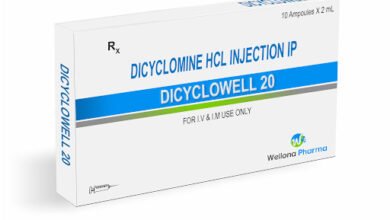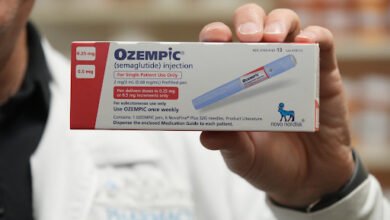New RSV Vaccine for Babies & Adults – Benefits & Side Effects

A new vaccine against respiratory syncytial virus (RSV) was recently approved by FDA (Foods and Drugs administration). RSV is a common respiratory infection that can cause serious illness in infants, older adults, and immunocompromised individuals. The vaccine uses nanoparticle technology to trigger an immune response against the RSV fusion protein. Clinical trials have shown the vaccine is safe and effective at preventing severe RSV disease in infants and older adults. Potential side effects are mild. Widespread RSV vaccination could significantly reduce hospitalizations and deaths from RSV. More research is needed to determine the duration of protection and ideal target populations. Overall, the vaccine represents a major step forward in protecting vulnerable groups from this respiratory pathogen. In this blog, you will learn about the importance of new RSV vaccine for babies and adults.
What is RSV Vaccine?
The RSV vaccine is a relatively new immunization against the respiratory syncytial virus (RSV). RSV is a common respiratory virus that typically causes mild, cold-like symptoms. However, it can be severe for infants and older adults, leading to pneumonia, bronchiolitis, and other complications.
RSV Vaccine Types
There are two types of RSV vaccines available:
1. Maternal RSV vaccine
This vaccine is given to pregnant women in their late second or early third trimester. The antibodies produced by the mother are then passed to the baby, protecting them from RSV for the first few months of life.
2. RSV vaccine for adults
Currently, there are two RSV vaccines for adults:
These vaccines boost the body’s immune response to RSV, protecting against severe respiratory illness. The Abrysvo vaccine has been shown to reduce the risk of developing RSV-associated lower respiratory tract disease by 82.6% and severe RSV-associated disease by 94.1%. Conversely, the Arexvy vaccine reduces the risk of lower respiratory tract disease by 65.1% and severe disease by 88.9%. Both vaccines have demonstrated significant effectiveness in preventing RSV-related complications.
What is the new RSV vaccine for babies?
A shot called nirsevimab, which helps protect babies from a serious infection called RSV, was suggested by the Centers for Disease Control and Prevention and the American Academy of Pediatrics in the fall of 2023. This shot is especially good for babies who are at the highest risk of getting a severe RSV infection.
Most Important Points of New RSV Vaccine For Babies
Here are some of the most important points regarding the new RSV vaccine for babies & infants
- RSV is the leading cause of bronchiolitis and pneumonia in infants under 1 year old. An effective RSV vaccine could significantly reduce respiratory disease in this age group.
- Goals of an infant RSV vaccine include reducing hospitalizations and deaths. It’s estimated a vaccine could prevent tens of thousands of hospitalizations annually.
- Target age range is typically 2-6 months old in order to immunize infants before their first RSV season. Additional booster doses may be needed.
Unique challenges exist, including generating sufficient immune response in young infants and avoiding vaccine-enhanced RSV disease. Safety is paramount. - Multiple vaccine platforms are being tested such as live-attenuated virus, protein subunit, and vector-based. No candidates are yet approved.
Phase 3 efficacy trials in thousands of infants are underway for leading vaccine candidates, assessing protection against medically-significant RSV illness. - If safety and efficacy are proven, an infant RSV vaccine would be a major advancement in preventing severe lower respiratory infections.
Public health impacts could be substantial in saving lives, reducing hospitalizations, and lowering healthcare costs. The infant RSV vaccine is a top global health priority.
RSV Vaccine For Babies Schedule
If approved, an RSV vaccine for infants would likely be given starting at 2 months old, with additional doses at 4 and 6 months. The goal is to provide protection during the peak RSV season in babies’ first year. The specific schedule will depend on the vaccine, but timely vaccination can help prevent severe respiratory infections from this virus.
Potential Benefits of RSV Vaccine
- Prevent RSV infections – New RSV vaccine could help prevent infections from the respiratory syncytial virus, the leading cause of lower respiratory tract infections in infants and young children. Reducing RSV infections would be a significant public health benefit.
- Reduce hospitalizations – RSV infections often lead to bronchiolitis and pneumonia in young children, resulting in many hospitalizations. An effective RSV vaccine could significantly reduce the number of infants and children who need to be hospitalized due to RSV.
- Protect high-risk groups – Premature infants, children with chronic lung disease or congenital heart defects, and the elderly are at higher risk for severe disease from RSV. A vaccine could provide crucial protection for these vulnerable populations.
- Reduce RSV deaths – Estimates suggest over 100,000 child deaths per year worldwide are due to RSV. An RSV vaccine could potentially save thousands of young lives each year.
- Lower healthcare costs – Hospitalizations for RSV infections incur significant healthcare expenses. By reducing hospitalizations, an RSV vaccine could reduce the economic burden of this disease.
- Prevent infections in older adults – While RSV primarily causes illness in young children, it can also lead to pneumonia and exacerbations of asthma and COPD in older adults. A vaccine could protect age groups.
- Mild and temporary reactions
- Redness or swelling at the injection site
- Low-grade fever
- Irritability or fussiness
- Decreased appetite
- Tenderness at the injection site
- General discomfort
- Rare severe allergic reactions, e.g. Allergic asthma (contact a healthcare provider if observed)
- One dose appears to offer protection for at least two RSV seasons. This means that a single shot during the current RSV season should also provide significant protection throughout the following season.
- Further studies are needed to determine if booster doses will be necessary. The vaccines long-term effectiveness and the need for booster shots are still being investigated.
- Antibodies transferred from the mother through the placenta during pregnancy offer protection for the first six months of life. It is a crucial period when infants are most vulnerable to severe RSV illness.
- The duration of protection beyond six months is still being evaluated. More research is needed to understand how long these maternal antibodies remain effective and if additional doses are required for sustained protection.
Common Side Effects of RSV Vaccine in Babies & Adults
Side effects of RSV vaccine in babies and adults may include:
Who Should Get RSV Vaccine?
Adults aged 60 and older are recommended to receive a single dose of the RSV vaccine for adults. While RSV infections can still occur in this age group, the vaccine significantly reduces the risk of severe RSV-related complications. Adults with chronic medical conditions, such as heart or lung disease, weakened immune systems, or residing in nursing homes or long-term care facilities, are particularly susceptible to severe RSV illness and should consider vaccination.
Is RSV Vaccine Safe?
The safety of RSV vaccines is not yet specific. Clinical trials are ongoing. Careful monitoring in expanded trials is needed to assess rare side effects. Overall safety results appear reasonably reassuring, but more data is required.
RSV Vaccination for Pregnant Women
RSV, or respiratory syncytial virus, is a big reason why babies end up in the hospital for breathing problems in their first year. But there is hope! If we give pregnant women a vaccine for RSV, it can help protect their babies when they are born. The vaccine works by passing on protective antibodies from the mom to the baby before birth.
Right now, scientists are testing different RSV vaccines for pregnant women to see if they work well and are safe. If these vaccines get the green light after more testing, they could be a super helpful way to keep little ones safe from serious breathing issues caused by RSV. But we still need more big tests to ensure these vaccines do the job.
In the future, getting an RSV vaccine during pregnancy might become essential to keep our babies healthy and safe from harmful respiratory infections. Checking out the latest updates on this research will help us understand more about how it could help.
How Long Does RSV Vaccine Last?
The duration of protection provided by the RSV vaccine is still being actively studied, but heres what we know so far:
For adults 60 years and older
For infants protected through maternal vaccination:
Conclusion
Respiratory syncytial virus (RSV) poses a significant threat to infants, young children, and vulnerable adults. The availability of RSV vaccines, such as Abrysvo and Arexvy for adults and nirsevimab for infants and young children, provides a crucial line of defence against severe RSV-related complications.
By following healthcare providers recommendations and staying informed about vaccine availability and timing, we can take proactive steps to prevent RSV and protect the health and well-being of both new RSV vaccine for babies and adults. Remember, baby vaccination is an essential tool in our fight against RSV, and by taking action, we can significantly reduce the burden of this respiratory virus. I hope you now understand “Who should get the RSV Vaccine?”
Frequently Asked Questions
What is RSV vaccine?
The RSV vaccine is designed to prevent respiratory syncytial virus (RSV) infection, particularly in high-risk populations such as infants and older adults.
Is RSV a live vaccine for adults?
No, RSV vaccines for adults are not live vaccines; they are typically either subunit or monoclonal antibody vaccines.
Is RSV high risk?
Yes, RSV (Respiratory Syncytial Virus) is considered high risk, especially for infants, older adults, and individuals with certain health conditions, as it can lead to severe respiratory illness.
Who Should Get RSV Vaccine?
Adults aged 60 and older, particularly those with chronic medical conditions, and infants under specific conditions are recommended to receive the RSV vaccine.
When will an RSV vaccine be available for babies and infants?
There is no approved RSV vaccine yet – the first infant RSV vaccine could potentially be approved within 5-10 years if clinical trials demonstrate safety and efficacy.
RSV vaccine for pregnant women?
Yes, pregnant women between 32 and 36 weeks pregnant can get a single dose of the RSV vaccine to help protect their newborns from severe RSV illness.
Where can i get the RSV vaccine?
You can get the RSV vaccine at various locations, including:
Your doctor’s office, Pharmacies, Public health clinics, Federally Qualified Health Centers (FQHCs). To find a specific location near you where you can get the RSV vaccine, you can use the CDC’s vaccine finder tool: https://www.vaccines.gov
Where to get rsv vaccine for babies?
You can get the New RSV vaccine for babies at pediatrician offices, health clinics, or vaccination centers.
Source link
#RSV #Vaccine #Babies #Adults #Benefits #Side #Effects




